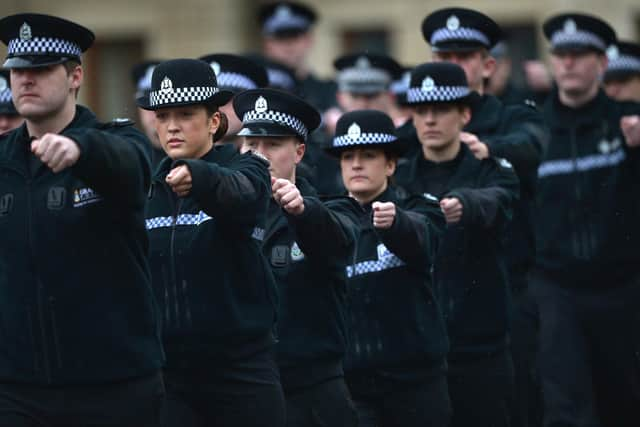Police Scotland's decision to stop investigating minor crimes is not shocking to former officers like me – Tom Wood
I must admit to being bemused by the fuss over Police Scotland’s recent announcement that they would not investigate some minor crimes. Anyone with the vaguest knowledge of policing knows they've always had this policy.
As a detective sergeant at a busy Edinburgh police station many years ago, one of my daily tasks was to shuffle through the pile of crime reports to decide on priorities. It’s an exercise anyone who worked at a busy police station will recognise.
Advertisement
Hide AdAdvertisement
Hide AdSerious, sexual or violent crime came first, then it was strictly a matter of what was possible. What crimes looked to have the best chance of a detection, what ones were likely to come back to bite, and which seemingly minor crimes might form part of a pattern and need monitoring.


These priorities having been established, the most likely crime reports were dished out to my small team of detectives. Immediate action was wise, not just because that often brought the best results but because the next day there would be another pile of crimes to investigate. Investigative skill was only one of the attributes required of a detective, you also had to adept at juggling a caseload, keeping the admin straight was a survival skill.
Of course, many crimes were not allocated to detectives at all, but to uniformed community cops. One of the most enduring myths is that most crimes are solved by detectives. It’s never been true, good community beat cops, with their local connections, could be hugely successful.
But after all the shuffling and distribution, there were still substantial numbers of minor crimes that had no leads to follow. For them it would be a matter of marking them “no further enquiry”, recording them, and making a call to the victim.
Don’t underestimate the value of a courtesy call. Most victims of petty crime are realistic, they don’t seek blood or vengeance, but to be treated with respect and kept in the loop. They do not want to be fobbed off by a call centre, or told their report is trivial. Call it old-fashioned courtesy or public reassurance, but it works.
So why the change? Why this formal announcement of a proportionate approach that only formalises the practices of old? I suspect it’s because Police Scotland feel it’s time to dispense with some of the old ‘soft soap’ and face facts. The truth is that the elastic only stretches so far before something has to give.
While funding is falling and more and more demands are being made on police, a reality check is needed. In a time of political flummery, when the gap between talk and action grows ever wider, we should welcome straight-talking, however unpalatable. All our local services are under financial pressure and face tough choices. We deserve to know where the cuts are being made and what the consequences may be.
The main consequence of not investigating minor crime is that you can miss the big picture, the connection to more serious crimes or patterns that may add up to something sinister. As long as decent monitoring systems are put in place, there will be little loss. And if it frees up some police – street time – all well and good.
Tom Wood is a writer and former police officer